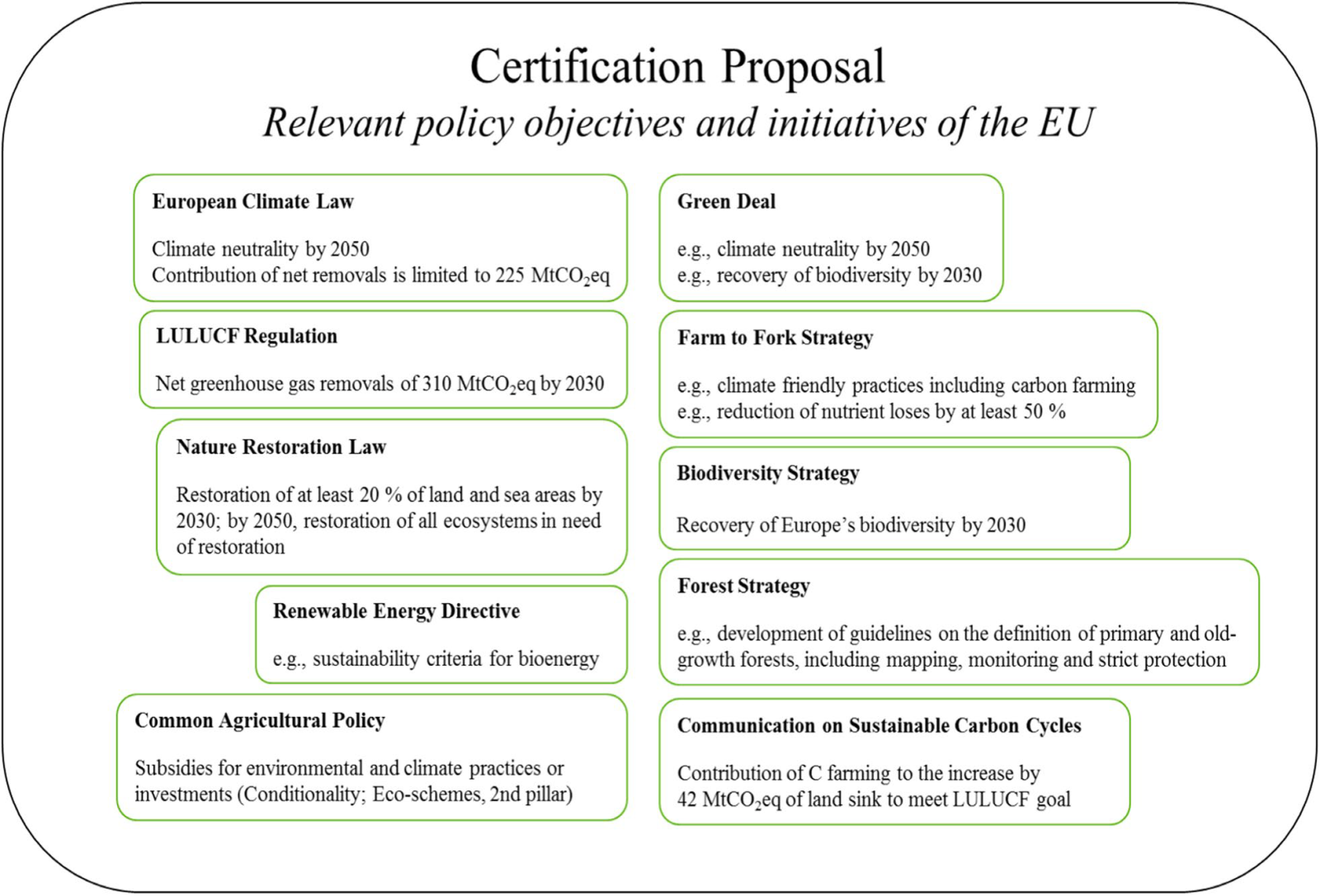Carbon farming, overestimated negative emissions and the limits to emissions trading in land-use governance: the EU carbon removal certification proposal
April 10, 2024 | Environmental Science Europe | Source |
Introduction: Researchers from University of Rostock in Germany examine the European Commission's proposal for a certification framework for carbon removal activities to reduce greenhouse gas emissions and achieve carbon neutrality.
Key findings: The European Commission's proposal for a certification framework for carbon removals (CRCF) aims to enhance transparency and promote activities like carbon farming. However, there are concerns about its effectiveness and impact on biodiversity. While the EU sees carbon farming as crucial for offsetting emissions, challenges like reversibility and overestimated sequestration potential exist. The CRCF aims to address these issues but may contradict international climate and biodiversity goals. Concerns include the lack of hierarchy between emission reductions and removals, the allowance of temporary removal crediting, and extensive Commission powers. Additionally, the proposal's failure to restrict credit use risks double claiming and integration into the EU's emission trading scheme. Suggestions for addressing these concerns involve subsidy schemes and regulatory instruments, emphasizing the necessity to balance carbon removal incentives with emission reduction efforts.

Figure | Examples of policy objectives and initiatives that touch upon the CRCF.
Viewed Articles
April 10, 2024 | Environmental Science Europe | Source |Â Introduction: Researchers from University of Rostock in Germany examine the European Commission's proposal for a certification framework fo
Read More
April, 2023 | Environmental Challenges | Source |  Introduction: Upstream greenhouse gas (GHG) emissions (i.e. scope 3)—accounting for 70–90% of the dairy industry’s total emissions—pose a persistent
May 22, 2020 | Frontiers in Sustainable Food Systems | Â Introduction: Global pathways consistent with the Paris Agreement rely on substantial reductions in agricultural methane (CH4) and N2O alongside
February 28, 2021 | Global Change Biology | Source | Â Introduction: Mangroves significantly contribute to global climate mitigation by storing substantial carbon, yet their continuous loss poses major
October 20, 2022 | Journal of Cleaner Production | Source | Â Introduction: While organic livestock systems are often hailed as environmentally friendly, their greenhouse gas (GHG) emissions and carbon
October 15, 2021 | Fuel | Source |Â Introduction: A research team from SRM Institute of Science and Technology and Sri Sivasubramaniya Nadar College of Engineering in India reviews sustainable pathways






